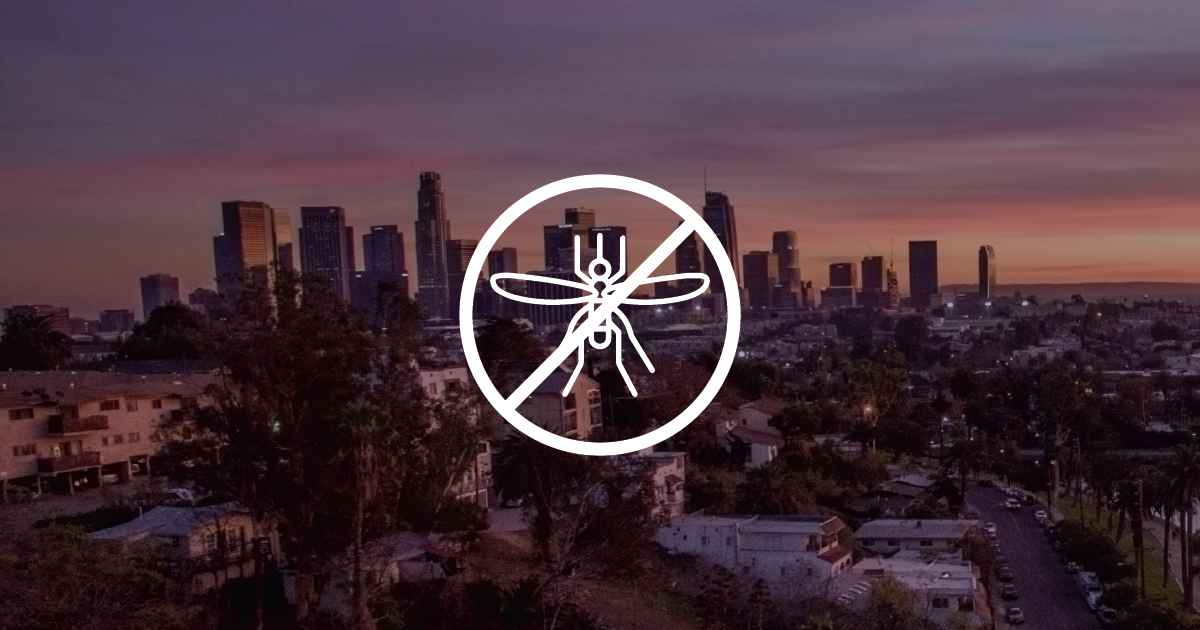West Nile Virus Confirmed in L.A. County

Recently, the Los Angeles County Department of Public Health confirmed the first death in L.A. County from the West Nile Virus (WNV). It was one of 10 documented cases of WNV in L.A. County, reminding us all that when we have a long, hot summer, we need to be vigilant about protecting ourselves from mosquito bites.
West Nile Virus is the leading mosquito-borne disease in the Continental U.S. and it is transmitted to people and animals through the bite of an infected mosquito. This year, however, residents living on the East Coast are having a similar outbreak of mosquito-transmitted disease with Eastern Equine Encephalitis (EEE).
According to the Centers for Disease Control (CDC), most people who become infected with WNV never actually experience any symptoms. 1 in 5 people who are infected develop symptoms like fever, headache, body aches, joint pain, vomiting and diarrhea. Generally, people who develop this level of infection recover completely, but may experience fatigue and weakness for weeks or even months.
1 in 50 infected people develop severe illness that affects the central nervous system. These are infections such as encephalitis (inflammation of the brain) or meningitis (inflammation of the membranes surrounding the brain and spinal cord). These people experience high fever with headache, neck stiffness, stupor, disorientation, tremors, convulsions, muscle weakness, vision loss, and even paralysis or coma. This can occur in people of any age, but generally, people over the age of 60 are at greater risk, as well as people with certain medical conditions like cancer, diabetes, hypertension and kidney disease. This level of infection will most likely require hospitalization and might take weeks or months for recovery. Some effects to the central nervous system can be permanent. 1 in 10 people with this infection die.
Diagnosis of WNV requires a physical exam first. Your doctor may request a blood test which might show a rising level of antibodies to WNV. Antibodies are proteins sent out by your immune system to attack foreign substances, such as viruses.
The most common way to diagnose WNV is through a procedure called a Lumbar Puncture (Spinal Tap). A trained interventional radiologist inserts a needle into the lower vertebrae of your spine to extract fluid for analysis. This fluid may show an elevated white blood cell count, which is a signal that your immune system is fighting an infection, as well as antibodies to WNV.
In some cases, an MRI of the brain is necessary to help detect brain inflammation.
While there are currently no vaccines to prevent WNV, your best defense is to protect yourself from mosquito bites. These measures include eliminating standing water, ensuring that swimming pools are properly maintained; and whenever you go outside, wear insect repellent, long sleeves and long pants.
RadNet centers offering Interventional Radiology* administer lumbar punctures by our fellowship-trained, board-certified interventional radiologists.
At all of our centers, we use the most current, state-of-the-art equipment and cutting-edge technology. We believe in providing patient-centered care and working in collaboration with physicians and their patients. We strive to keep you informed and help you stay healthy.
*San Fernando Valley Interventional Radiology & Imaging Center
*Rancho Mirage Interventional Radiology & Imaging Center
*Victor Valley Advanced Imaging

